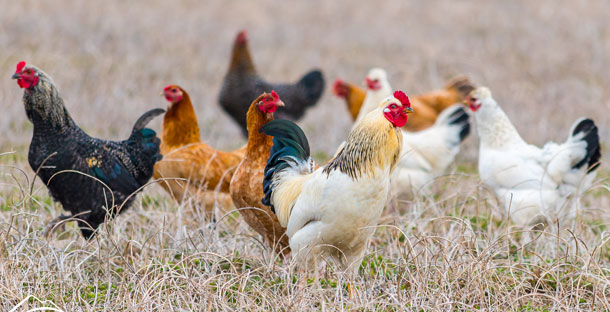Step into the world of poultry farming, where the delicate balance between humans and our feathered friends must be maintained. As we strive to provide the best care for our poultry, we come face to face with a tiny nemesis - mites and lice. These pesky creatures may be small in size, but their impact can be significant. They can cause discomfort, spread diseases, and even hinder egg production. But fear not, for we are here to guide you through the challenge of dealing with these unwelcome visitors. Join us as we explore effective strategies, expert tips, and natural remedies that will help keep your flock healthy and happy. So, gather ’round all you poultry enthusiasts, it’s time to conquer the world of poultry mites and lice, one feather at a time!

1. Unwanted Visitors: Battling Poultry Mites and Lice

If you have ever owned chickens, you know that poultry parasites, such as mites and lice, can be a pesky problem. These unwanted visitors not only cause discomfort to your feathered friends but can also lead to decreased egg production and overall poor health. To combat these tiny intruders, follow these practical tips:
- Regularly inspect your flock: Perform routine checks on your poultry for signs of infestation, such as feather loss, irritated skin, or excessive scratching.
- Keep the coop clean: Maintain a clean and dry environment by regularly removing bedding, sweeping the floors, and disinfecting the coop.
- Treat infested birds: Isolate and treat any affected birds using poultry-friendly products recommended by a veterinarian.
- Prevent future infestations: Implement preventive measures like dust baths, diatomaceous earth, or herbal remedies to keep mites and lice at bay.
By staying vigilant and implementing proper preventative measures, you can ensure a happy and healthy flock free from these unwelcome poultry pests.
2. Warding off the Tiny Intruders: Proven Strategies for Effective Poultry Parasite Prevention

- Maintain a Clean Coop: Regularly clean and disinfect the poultry house to remove any lingering parasites.
- Implement Biosecurity Measures: Restrict access to the coop, using footbaths and providing separate clothing for visitors.
- Ensure Proper Ventilation: Good airflow helps prevent moisture buildup, reducing the risk of parasite infestation.
- Practice Rotational Grazing: Move your poultry to fresh pasture frequently to minimize exposure to parasites.
- Use Natural Repellents: Incorporate herbs like garlic, mint, and lavender into their diet to naturally repel parasites.
- Consider Diatomaceous Earth: Sprinkle food-grade diatomaceous earth in the coop and around the poultry to kill parasites.
Wrapping Up about Dealing with Poultry Mites and Lice.
In conclusion, dealing with poultry mites and lice can be a challenging task for chicken keepers, but it is a crucial part of ensuring the health and well-being of our feathered friends. These tiny pests may seem insignificant, but their presence can lead to numerous issues for both the birds and their surroundings.
By following the steps mentioned earlier and implementing proper preventive measures, you can significantly reduce the risk of infestation and create a safe environment for your poultry. Regularly inspecting and cleaning the coop, along with providing appropriate bedding materials and dust baths, will go a long way in keeping these pesky intruders at bay.
Remember, not only do these pests cause discomfort and stress to your chickens, but they can also impact egg production and overall flock health. It is essential to be proactive when it comes to controlling mites and lice, as prevention is key in this battle.
So, equip yourself with the necessary knowledge, stay vigilant, and take necessary action promptly. With a little effort and some effective treatments, you can ensure that your poultry are happy, healthy, and free from these bothersome parasites.
Now, let’s give our chickens the comfortable, pest-free environment they deserve!
